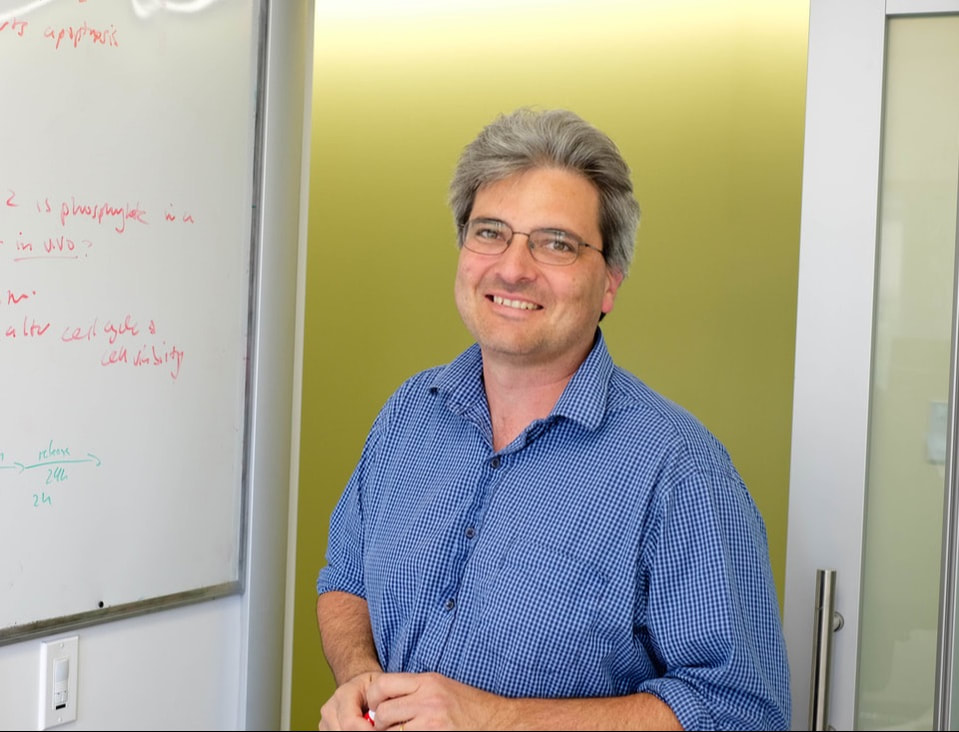|
Andrei Goga is a basic investigator as well as a medical oncologist whose lab is focused on studies of oncogene function and the identification of new therapeutic strategies to target currently undrugable cancers and to eliminate metastasis.
Much of our work is focused on aggressive forms of cancer, such as receptor triple-negative breast cancer, oral, head and neck, liver and lung cancers. Dr. Goga has received scholar awards from the Susan G. Komen Foundation, the Leukemia Lymphoma Society, and a CDMRP Breast Cancer Research Program - Era of Hope Award. |
Andrei Goga Professor, Dept. Cell & Tissue Biology and Dept. of Medicine, Heme / Onc. Member UCSF Biomedical Sciences and Tetrad Graduate Programs UCSF Gazarian Presidential Chair Co-Director, UCSF Oral, Head and Neck Research Group Attending Physician - UCSF Breast Oncology Program B.S., University of California, Los Angeles M.D., University of California, Los Angeles Ph.D., University of California, Los Angeles, Molecular Biology Mentor: Owen N. Witte, M.D. Residency, Internal Medicine, UCSF Fellowship, Medical Oncology, UCSF Post-Doctoral Fellow, UCSF Mentors: J. Michael Bishop, M.D. and David Morgan, PhD |
|
Current Research Support:
NIH / NCI Atwater Foundation Breast Cancer Research Foundation Gazarian Family Foundation CDMRP BCRP |
Prior Research Funding:
Program in Breakthrough Biological Research (PBBR) V- Foundation Leukemia, Lymphoma Society (LLS) Gallo Family Foundation ACS Pilot Award |
